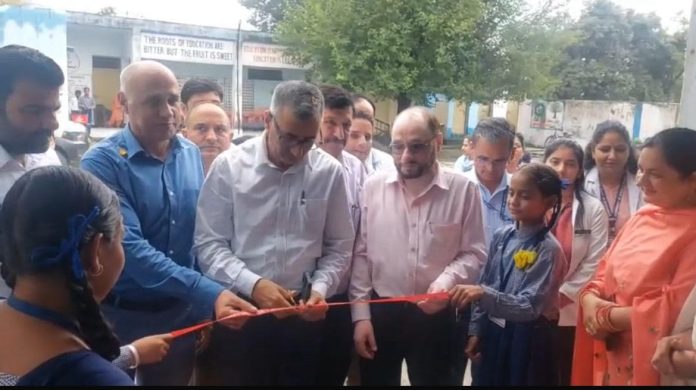KATHUA: As part of the nationwide initiative to eliminate worm infestation among children, National Deworming Day was today observed across Kathua district with a series of activities aimed at promoting awareness and administering preventive medication to the targeted population.
The main programme was organised at Government Middle School, Kalibari, where Deputy Commissioner Kathua Rajesh Sharma presided over the function and formally distributed Albendazole tablets among the students. The event witnessed the participation of teachers, health workers, Anganwadi workers and a large number of students.
The Deputy Commissioner highlighted the importance of the day in safeguarding the health of children and adolescents. He said that intestinal worm infections, though preventable, can significantly hamper the physical growth, cognitive development and academic performance of children. The DC informed that the district administration, in coordination with the Health and Education Departments, is conducting the deworming drive in both government and private educational institutions.
Underscoring the need for community participation, the Deputy Commissioner appealed to parents, guardians and school authorities to ensure that all children in the 1–19 years age group are administered the deworming medicine. “A healthy child is the foundation of a healthy nation, and timely deworming plays a crucial role in improving nutritional uptake and learning capacity,” he said.
Chief Medical Officer Kathua informed that the campaign is being simultaneously implemented across all schools and Anganwadi Centres in the district. Sharing details of the target, the CMO said that nearly 1.5 lakh children, including school-going and out-of-school children, are covered under the current round of the campaign. He added that a single dose of Albendazole is administered every six months to children above two years, while those aged between one and two years are given half a tablet as per medical guidelines.
Pertinently, the National Deworming Day is observed bi-annually across the country under the National Health Mission with the objective of reducing the prevalence of parasitic intestinal worms among children and adolescents.


